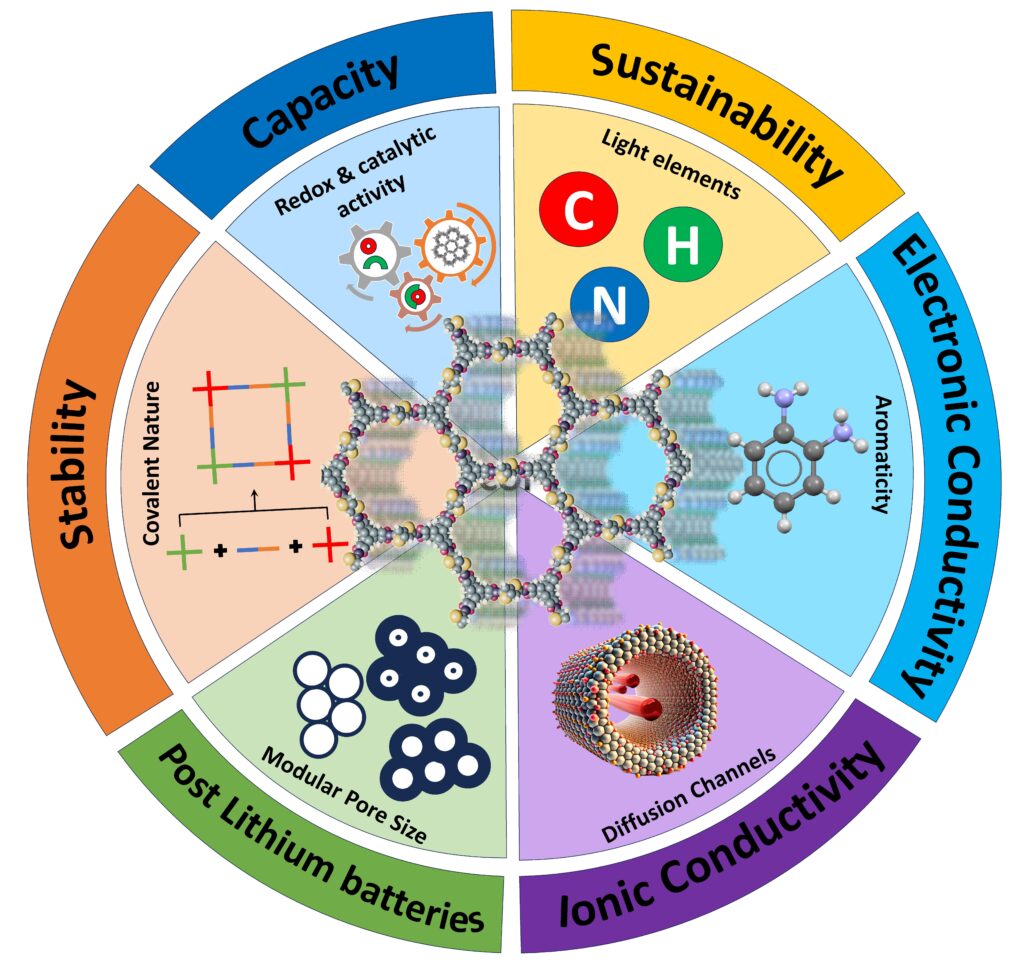Covalent organic frameworks can play a key role in sustainable energy storage
A recent review article, featuring contributions from CATRIN, provides a comprehensive summary of advancements in covalent organic frameworks (COFs) and their applications in energy storage. This paper, published in the prestigious journal Advanced Energy Materials, highlights significant progress in the field. Covalent organic frameworks are porous structures that, due to their properties, show great promise for advanced electrode materials. Their non-metallic composition is essential for the sustainability of materials, and they are also very light, stable and chemically very well modifiable. However, their design is still challenging and their low conductivity poses a problem. That is why researchers from different parts of the world are proposing strategies to optimize the design of COFs and, possibly, improve their properties as well. The aim is to enable their widespread use in, for example, batteries or supercapacitors.
“The possibility of precise engineering at the molecular level allows to modify the pore size, surface chemistry and electrochemical properties of COFs, which makes them ideal candidates for thin and flexible electrode materials. In the article we not only mapped the existing knowledge in this issue, but also suggested possible future directions of optimization of covalent organic frameworks for use in the field of energy storage,” said one of the authors Radek Zbořil.
Scientists from CATRIN, CEET at VSB-TUO together with colleagues from India, Poland and Great Britain participated in the article. The study was also conducted thanks to the support of the TECHSCALE projects from the Jan Amos Komenský Operational Programme and REFRESH from the Fair Transformation Operational Programme.
Covalent organic frameworks are porous structures that, due to their properties, show great promise for advanced electrode materials. Their non-metallic composition is essential for the sustainability of materials, and they are also very light, stable and chemically very well modifiable. However, their design is still challenging and their low conductivity poses a problem. That is why researchers from different parts of the world are proposing strategies to optimize the design of COFs and, possibly, improve their properties as well. The aim is to enable their widespread use in, for example, batteries or supercapacitors.
“The possibility of precise engineering at the molecular level allows to modify the pore size, surface chemistry and electrochemical properties of COFs, which makes them ideal candidates for thin and flexible electrode materials. In the article we not only mapped the existing knowledge in this issue, but also suggested possible future directions of optimization of covalent organic frameworks for use in the field of energy storage,” said one of the authors Radek Zbořil.
Scientists from CATRIN, CEET at VSB-TUO together with colleagues from India, Poland and Great Britain participated in the article. The study was also conducted thanks to the support of the TECHSCALE projects from the Jan Amos Komenský Operational Programme and REFRESH from the Fair Transformation Operational Programme.
18/6/2024


